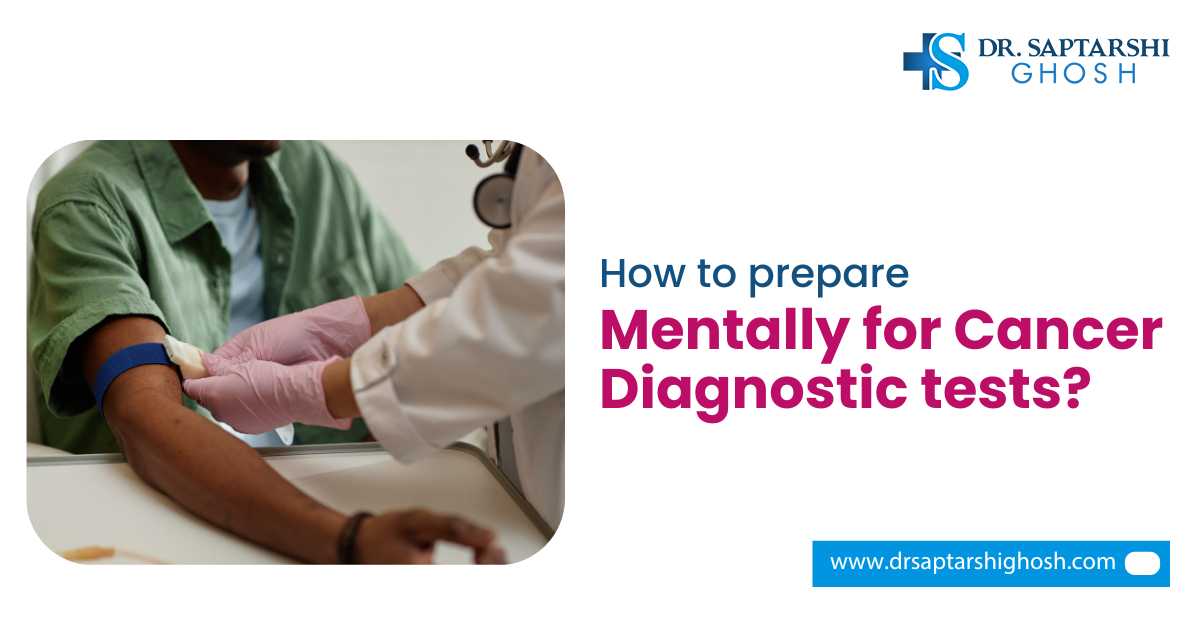All of a sudden, a cancer diagnosis leads us to difficult choices and a flurry of emotions. Here, feeling confused about the treatments and taking the right decision is natural. Thus, seeking a second opinion in such a circumstance is a wise and empowered move.
Having doubts or wanting to be clearer is absolutely normal. Getting the opinion of another cancer specialist can help you feel more confident and clear-headed, confirm your diagnosis, and investigate various treatment choices. For cancer treatment in Siliguri or near you, meet the most trusted oncologist.
In this blog, you’re going to know why getting a second opinion on cancer is a good idea, why it's especially crucial, how to do it, and important questions to ask. Making this process intelligible, controllable, and beneficial is the aim.
Why Take a Second Opinion?
Here are a few of the main causes:
Verifying the diagnosis and treatment strategy
You must know that cancer treatment is determined by the exact kind, stage, and grade of the disease. Getting a second opinion might confirm your initial diagnosis or, in certain situations, alter it. As an example:
Getting a second opinion in oncology may result in a different diagnosis and/or treatment strategy in many cases. Thus, receiving a second opinion can suggest alternative treatments or help validate the first doctor's opinion.
Exploring more or different treatment options
Science in medicine is continuously developing. Newer or more specialized therapy, including clinical trials, may be available to some doctors or treatment facilities. A different viewpoint can lead to better options and outcomes.
For instance, one cancer center discovered that around one out of three patients who sought a second opinion had modifications to the suggested course of therapy, which were frequently less drastic.
Your initial doctor might not have informed you about other options. Thus, if you have time, seek a second opinion. A decrease in treatment intensity if a less invasive method works just as well.
Taking charge and finding peace of mind
When you feel overwhelmed, getting a second opinion might help you regain your sense of peace. You'll feel more in charge of your health journey, ask more insightful questions, and be more educated.
A second opinion is particularly vital if your cancer diagnosis is a rare kind, the recommended course of treatment is extremely aggressive, or you are uncomfortable with your doctor's communication or level of experience.
When Is It Time for a Second Opinion?
In the following situations, it is advised: Prior to beginning treatment, particularly if your condition permits it.
- When the doctor states that "there is no clear standard of care," or when you have a rare or uncommon kind of cancer.
- If you think your queries aren't being addressed or if you're unhappy with your doctor's answers.
- You can get a second opinion to confirm or modify your treatment plan, even if you've already begun it.
It's never "too late" to seek a second opinion, even if it's in the middle of treatment or you're not seeing the anticipated improvement.
Step-by-Step Guide to Receiving a Second Opinion
Here is a helpful, simple-to-follow guide:
Step 1: Consult your present physician
Expressing your feelings to your present oncologist, such as you’re comfortable with your care, but you'd like to get one additional perspective to feel fully informed, is a possible line of expression. This is welcomed by many physicians.
Step 2: Gather your health care documents
Request full copies of your medical records, which should include:
- Report on pathology (biopsy findings)
- Imaging tests, such as CT, MRI, and PET scans
- Reports on laboratory tests
- Summaries of operations or hospital discharges (if any)
- The diagnosis, suggested course of therapy, and remarks from your physician.
Bring copies of your medical records if you have not already sent them.
Step 3: Select the appropriate source for a second opinion
Choose a team or specialist with experience in the type of cancer you have (for example, if it's a rare tumor, find a cancer hospital that sees a lot of those).
You may think about whether telemedicine, or remote consultation, is practical; this is particularly useful if the specialist is located in a different city or nation.
Examine your budget or insurance policy to determine whether you will be responsible for paying for the second opinion out of pocket or whether it will be reimbursed.
Step 4: Get your questions ready
Bring a list of questions to the consultation, and for instance:
- To what extent do you think the initial diagnosis was accurate?
- Do you have any recommendations for other tests?
- Which therapy choices are available, taking into account quality of life factors, risks, and benefits?
- Are there any available clinical trials?
- What happens if we decide on a less intensive course of therapy or wait a little while?
You can make sure nothing is overlooked by putting your questions in writing.
Step 5: Attend the appointment and listen carefully
Bring a friend or relative whom you can trust. Evaluate their viewpoint:
1. Has the diagnosis been verified?
2. Have they proposed any modifications to the plan?
3. Is there a clear rationale behind their suggestion?
4. To what extent are you at ease with this physician or team?
Get advice from one of the top oncologists in Siliguri or near you for proper diagnosis and cancer treatment.
Here are Some Few Tips
Here are some more suggestions if you're in India (or another country) and considering getting a second opinion locally or abroad:
1. Remote second opinion services are provided by numerous prestigious cancer centers in India and outside (by teleconsultation, evaluation of digital records).
2. Make sure that, if required, your documents are translated and digitized (for foreign assessments).
3. Look at travel logistics, potential expenses, and whether local insurance will cover them if you go overseas.
4. Getting a second opinion is frequently more cost-effective than receiving aggressive, improper treatment.
5. Make use of reputable, sizable cancer centers with a reputation for interdisciplinary evaluation (e.g., centers that employ imaging experts, pathologists, and specialists).
6. You can still get a second opinion if your doctor feels your cancer has to be treated right now, but you should work with them to avoid losing any vital time.
It may seem intimidating to get a second opinion, but it's one of the most proactive things you can do when faced with a diagnosis like cancer. You might find comfort, fresh possibilities, and a more obvious way forward when you have that additional perspective. Whether cancer treatment in Siliguri or elsewhere, you can get a second opinion. Feel free to consult your doctor.
Comments (0)




